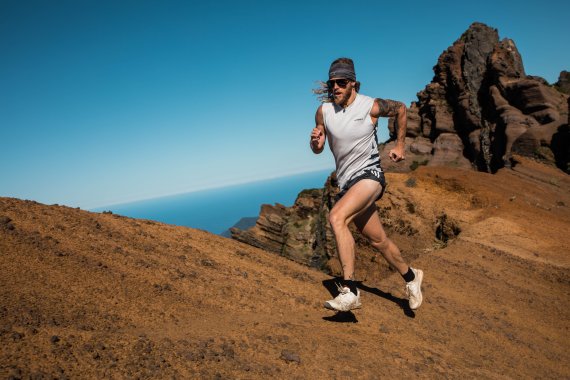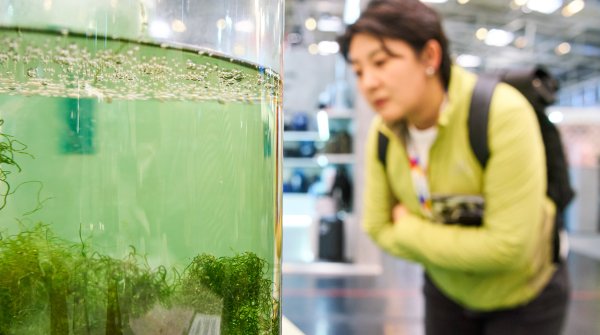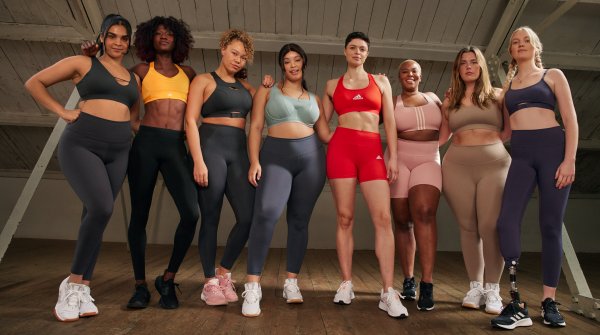
There's no question about it: the sports industry's ecological footprint is huge. But the scene seems to be waking up. Sustainability was already a big topic at ISPO Munich 2020 - so big that any brand that had nothing to say about it seemed ignorant. Above all, the outdoor brands advertised sustainability - after all, it is primarily their customers who spend their free time outdoors and appreciate nature.
The running sector also wants to become greener and has picked up the pace for 2021: More and more brands are trying their hand at materials made from recycled plastic, rethinking supply chains and transport routes, or trying to replace petroleum-based products with more environmentally friendly ones. Not all of them are succeeding by a long shot: Out of 19 brands surveyed, an average of just 1.6 brands can be described as producing at least partially sustainably, according to Urs Weber of the runner's magazine "Runner's World." However, most of them are concerned with the topic: Only 35 percent of the running brands have not yet paid any attention to their own sustainability.
Adidas is by far the most sustainable running shoe brand of all, according to a Runner's World survey, followed by Asics. Brooks, Salomon and Nike are close behind in third to fifth place, with On following in sixth. The top ten most sustainable running shoe brands at a glance:
- Adidas: 34 %
- Asics: 19
- Brooks: 14 %
- Salomon: 13
- Nike: 13
- On: 11 %
- New Balance: 8
- Hoka One One: 6 %
- Saucony: 6 %
- True Motion: 5%
Some pressure to produce shoes and apparel for runners more sustainably in the future is also coming from the customers themselves: One in four of a total of 10,576 runners of various ages and abilities surveyed are willing to spend more money on sustainable products. Asked about the three main criteria that make a running product sustainable for them, survey participants responded:
- Durability: 52%
- Environmentally friendly production processes: 48
- Use of recycled materials: 36
- Fair trade goods: 35
- Material made from renewable raw materials: 23 %
- CO2-neutral production: 22
- Short transport routes: 20
- Produced in the EU: 16
- Transparent and traceable production processes: 16 %.
After all, one in four said that they had already paid attention to sustainability when buying a product in the past twelve months. This was particularly important for running shoes, shirts, jackets and trousers. Almost all participants in the survey - 97 percent - would like to pay more attention to sustainability in the future when buying a new running product.
Andrej Zwer, Category Director at Adidas Terrex, is pleased that his company is at the forefront of sustainability: "I think it's fair to say that we take a holistic view of sustainability at Adidas. We don't just look at natural or recycled materials, but also at the little things. Even the little ribbon that attaches the label to the shoe or garment is no longer made of plastic.
Caspar Coppetti of On, whose running shoe "Cyclon" won the ISPO Award Sustainability at ISPO Munich Online and was named ISPO Award Product of the Year in the Running & Fitness segment, also thinks the running industry is getting better at sustainability. "But we still have a lot of catching up to do."
Spanish trail runner Kilian Jornet thinks the sports industry is on the right track when it comes to sustainability: "I'm so happy that an entire day was dedicated to the topic at ISPO Munich Online, and very thankful for every brand that addresses it. It's hugely important!" Equally important, he said, is that the industry, top athletes, and consumers are all pulling in the same direction: "We've known for a long time what we need to do to save the climate, because scientists have been telling us for years. Not knowing what to do can no longer be an excuse today. We don't have much time left."
Traveling to running races around the world is anything but sensible, Jornet admitted in his Impulse Speech on Sustainability Day at ISPO Munich Online: "It may be great for us runners, but it's a disaster for the environment." The Catalan, who himself flies to international races every year, has therefore set himself an upper limit of CO2emissions, which he also offsets through donations. The outdoor and running industries need to work closely together and talk about sustainability together, says the 33-year-old: "Outdoor athletes are close to nature. We should be a role model for everyone else and think about how we can make the change. Let's become number one and finally get it done!"
Whether it's running or outdoor, it's not really important which industry is pushing ahead in terms of sustainability and is faster than the others.
The most important thing is that the topic now seems to have arrived in the industry and in the minds of customers. That something really seems to be rolling. And that everyone has the same goal: to reduce the ecological footprint of sport.
- ISPO awards
- Mountain sports
- Bike
- Design
- Retail
- Fitness
- Health
- ISPO Job Market
- ISPO Munich
- ISPO Shanghai
- Running
- Brands
- Sustainability
- Olympia
- OutDoor
- Promotion
- Sports Business
- ISPO Textrends
- Triathlon
- Water sports
- Winter sports
- eSports
- SportsTech
- OutDoor by ISPO
- Heroes
- Transformation
- Sport Fashion
- Urban Culture
- Challenges of a CEO
- Trade fairs
- Sports
- Find the Balance
- Product reviews
- Newsletter Exclusive Area
- Magazine







